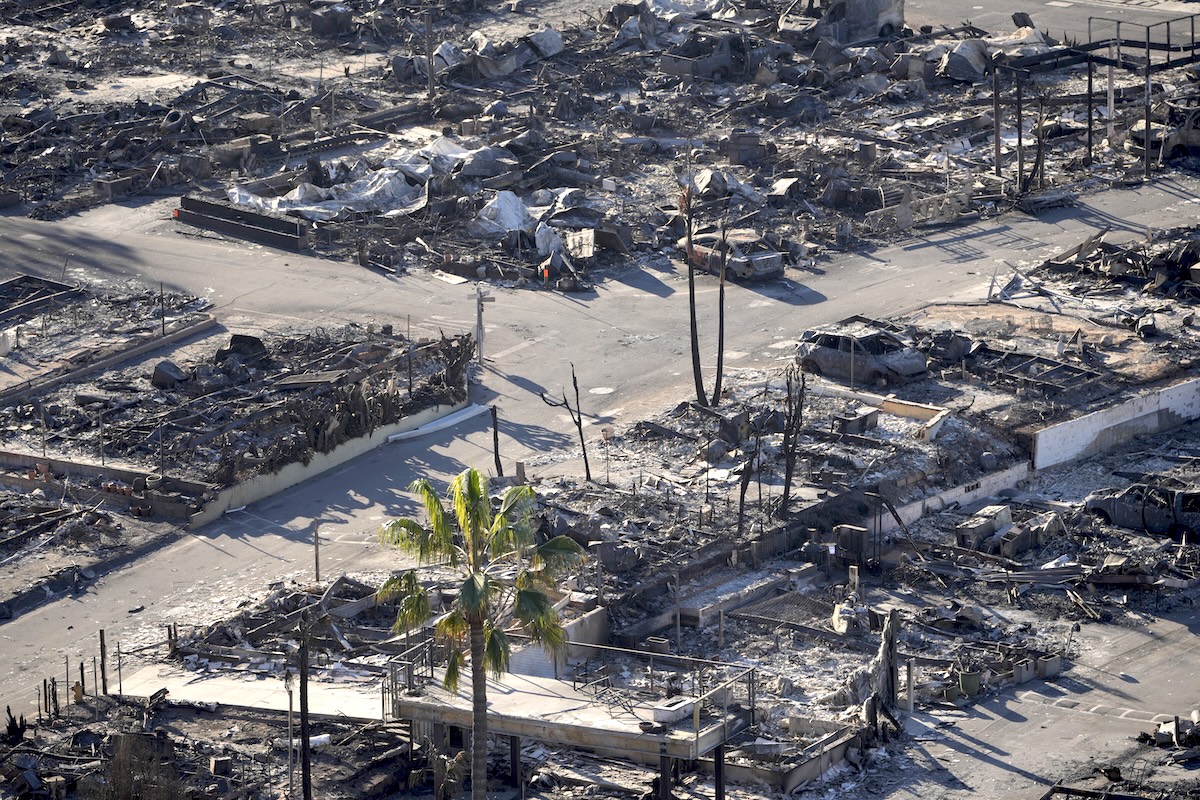Even as the devastating fires in Los Angeles continue to burn, leaving a trail of destruction, stories are emerging about the role immigrants are playing in recovery efforts from what is likely the worst disaster in California history.
Some are calling them, “second responders.”
“The guys (day laborers) are already out helping because there aren’t enough city personnel,” says Angelica Salas, executive director of the Coalition for Humane Immigrant Rights of LA (CHIRLA). “They are going through the streets, helping people cut down their trees and get them off the roads.”
But Salas and others worry about the exploitation many of these workers face.
“It’s something they always go through,” she notes. “They go, clean up, and rebuild, and all of a sudden, it’s no pay, entry into toxic zones with no protection, and contractors hiring subcontractors and day laborers with no guarantees.”
Donald Trump’s return to the White House on January 20 heightens such fears, with his promise of mass deportations targeting unauthorized migrants increasing their sense of vulnerability.
“I think people might not show up for jobs in Los Angeles for fear of being raided,” said Jennie Murray of the National Immigration Forum, which brings together business owners and law enforcement leaders sympathetic to the need for comprehensive immigration reform.
A majority of essential workers in construction and disaster cleanup, critical to recovery in communities like Pacific Palisades, Altadena, and elsewhere affected by the fires, are immigrants. Many are undocumented or have temporary permission under programs like TPS and DACA, programs the new administration is threatening to eliminate.
“These are the people who are rebuilding the United States after hurricanes, floods, and fires; the vast majority are immigrants, and they are highly vulnerable, and they are highly exploited while doing that work,” explained activist Saket Soni of Resilient Workforce in an 2023 interview with NPR.
Post-disaster recovery industry
In the aftermath of Hurricane Katrina in 2005, the George W. Bush administration temporarily suspended sanctions on employers who hired undocumented immigrants in order to facilitate rebuilding efforts in affected areas.
Since then, natural disasters linked to climate change have multiplied, with immigrant workers the backbone of what has become a multi-billion-dollar, post-disaster recovery industry financed by both the government and insurance companies.
Experts say fear of detention and deportation contributes to labor abuses, and the overall health and safety of these workers.
Nick Theodore with the Department of Urban Planning and Policy at the University of Illinois Chicago surveyed workers during rebuilding in New Orleans after Hurricane IDA in 2021. He found that 40% of workers came to NOLA after the hurricane from other areas of the U.S., so-called “storm chasers,” a workforce flexibility unique to migrant laborers and vital to recovery efforts.
Yet Theodore’s survey also found numerous instances of labor violations and wage theft. Many workers reported various physical effects following cleanup operations after the disaster, which exposed responders to a range of toxic substances.
‘A perfect storm’
From her home on the Pasadena-Altadena border, Salas worries about what lies ahead.
“Here in California, we have been through many natural and weather disasters and, in every situation, the ones who go in and rebuild are almost always Latino immigrants.”
But they don’t just rebuild. Latinos are also victims of this disaster. Salas and nearly 300 members of her family live near the fires.
“My niece lost her house, so did my cousin’s husband’s dad, my best friend’s house burned down, and so did my cousin’s house,” Salas recounts. “My mother was evacuated, and several family members were left without work because they either worked as domestic workers or one of my mother’s sisters worked in a place where they took care of old people that also burned down. My sister is a teacher in a school that no longer exists.”
Salas’ parents were the first in her family to arrive from El Salvador in the 1970s. They all settled in northwest Pasadena, “One of the few places where African Americans and Latinos could buy homes.”
Data from the UCLA Institute for Public Policy and Politics estimates that more than 74,000 Latinos live within evacuation and warning zones, with one-in-four displaced or at risk of being displaced in Los Angeles County. Longstanding health and economic disparities further complicate their recovery. Many have no insurance.
“Right now, we are talking with the California Labor Commissioner about increasing protections for undocumented immigrants and immigrant workers in general,” said Salas. “For an unscrupulous employer, the easiest thing to do is say, ‘I’m going to call immigration; who are you going to complain to?’”
With Los Angeles scheduled to host the 2028 Olympics, on top of the already massive scale of reconstruction needed, concerns are mounting over the rising costs for labor and the potential for abuse.
“These fires are happening at a time when labor availability is low, when there are not enough workers for our industries in general, not just construction,” said Murray of National Immigration Forum.
She also warned of spillover effects on the insurance industry, with higher construction costs driving up the costs of coverage, “because these workers will be unavailable or afraid to move to the places where they are needed.”
“It’s a perfect storm,” she said.













